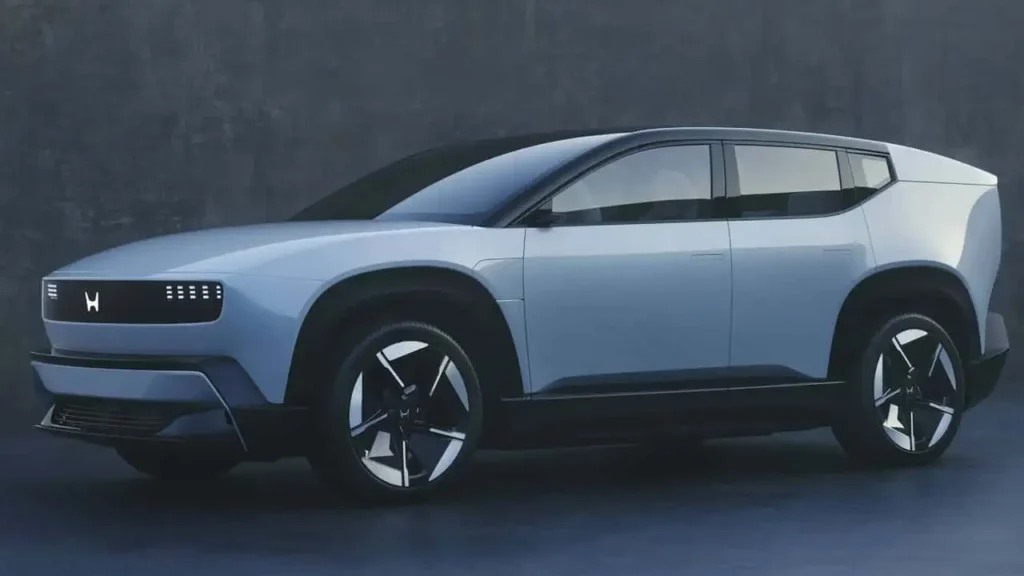Honda Pulls the Plug on Flagship Electric SUV Amid Industry-Wide EV Slowdown

Honda is scaling back its EV ambitions, starting with the cancellation of its much-anticipated large electric SUV project.
A notable pivot is underway in the global auto industry. As EV adoption in North America slows and financial pressures mount, automakers are adjusting course—and Honda is the latest to make a major move. According to a report from Nikkei Asia, Honda has officially cancelled plans for a full-size electric SUV originally scheduled for a 2027 debut.
This development comes as part of a broader shift within Honda’s electrification strategy. The automaker is reportedly reducing its EV investment through 2030 from ¥10 trillion (approximately $68.6 billion USD) to ¥7 trillion (about $48 billion USD).
Despite this pullback, Honda is still planning to move forward with its upcoming 0 Series electric sedan and midsize SUV models, both of which were revealed earlier this year and are expected to enter production in 2026.
A Shift in EV Priorities
Honda had originally laid out an aggressive plan to introduce seven all-electric models by the end of the decade. With the large SUV now off the table, the status of several of those vehicles remains unclear. What is clear, however, is Honda’s renewed emphasis on hybrid vehicles—a strategy it shares with other legacy automakers confronting a turbulent EV market.
The revised roadmap places hybrids at the center of Honda’s North American product strategy. Unlike full EVs, hybrids have seen consistent consumer interest and fewer infrastructure barriers. Honda appears to be betting that hybrid offerings will provide the flexibility consumers want while helping the company meet regulatory and efficiency goals.
The Broader Industry Recalibration
Honda’s decision follows a trend now echoing across the industry. Over the past year, several automakers have delayed or scaled back electrification plans in response to lagging demand, high production costs, and uncertainty around government subsidies.
In late 2024, Lotus shelved its plan to become an all-EV brand by 2028, pivoting instead to hybrid performance vehicles. Porsche recently revised its goals as well, acknowledging it would not hit its target of making 80 percent of its global sales electric by 2030. Instead, Porsche will expand its hybrid lineup to meet shifting market expectations.

Similarly, Nissan halted development on a planned compact EV crossover, while Mini confirmed it will continue selling gasoline-powered vehicles well into the next decade. Even Volvo—once committed to going fully electric—has admitted that its roadmap may need reconsideration.
Combustion Isn’t Dead Yet
While many brands are focusing on hybrids, others are investing in keeping internal combustion engines alive. BMW continues to call combustion the “foundation” of its lineup. Lamborghini is developing engines compatible with synthetic fuels. Mercedes-Benz, too, has announced a “course correction” to extend ICE development, and Audi recently said it would continue building gasoline engines until at least 2035.
In short, the auto industry’s once singular march toward electrification is fragmenting. Supply chain volatility, high battery costs, charging infrastructure challenges, and shifting geopolitical dynamics—particularly pressure from rapidly advancing Chinese EV manufacturers—are forcing automakers to reassess.
Honda’s Recalibrated Strategy
While some may see Honda’s cancellation of the large electric SUV as a retreat, the company likely views it as a strategic reallocation. By narrowing its EV focus and prioritizing models with clearer market viability, Honda is aiming to deliver electric products with broader appeal and profitability.
The 0 Series vehicles—the midsize SUV and sleek sedan prototypes previewed earlier this year—remain central to Honda’s electrification vision. These models are expected to integrate the brand’s next-generation e:Architecture platform and advanced connectivity features. Their arrival in 2026 will serve as a litmus test for Honda’s future in the electric space.
In the meantime, Honda’s hybrid portfolio will expand, with updated hybrid variants of core models like the Accord, CR-V, and Civic continuing to anchor its North American presence.
A Changing Landscape
The industry is entering a new phase where flexibility may be more valuable than aggressive EV targets. Consumers are voicing concerns about range, charging convenience, and cost—all of which contribute to the growing popularity of hybrids and plug-in hybrids as transitional technologies.
For Honda, pulling back on a large electric SUV may not be a step backward, but rather a recalibration. In a market still trying to define what electrification success looks like, strategic agility may prove more valuable than sheer investment.
Source: Nikkei Asia
Add a comment Cancel reply
Categories
Recent Posts
About us
This platform analyzes depreciation trends, resale value behavior, and long-term ownership costs, helping drivers understand how mileage, maintenance, and timing shape real financial outcomes.
Related posts
2026 Mazda CX-5 Drops the Buttons, Doubles Down on Innovation
- Guides
- Vehicle Research
- Tools
- Company
- Buying Guides
- Vehicle Reviews
- Fuel Cost calculator
- About Us
- Maintenance Guides
- Vehicle News
- Maintenance Cost Calculator
- Contact
- Repair Guides
- Towing & Payload Guides
- Repair Cost Estimator
- Privacy
- Ownership Guides
- Fuel Economy Guides
- Ownership Cost Calculator
- Terms
- Depreciation Guides
- Reliability & Ownership
- Trade-In Value Estimator
- Disclaimer
- Depreciation Calculator
- Loan / Payment Calculator